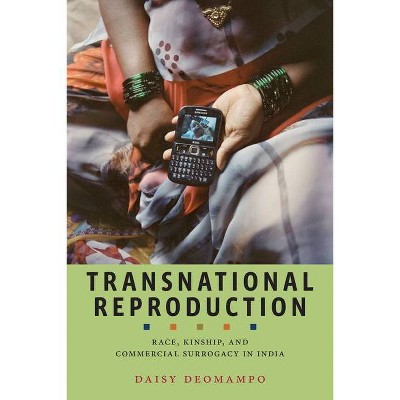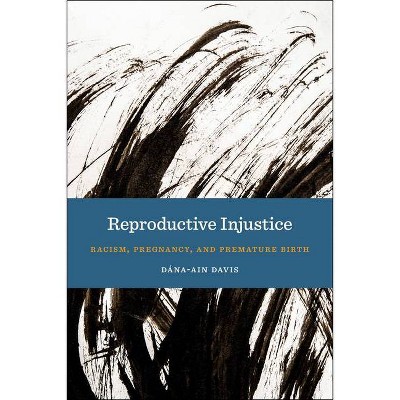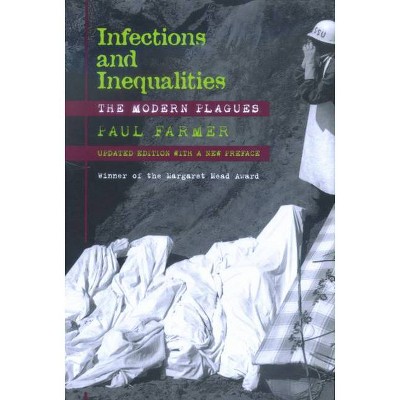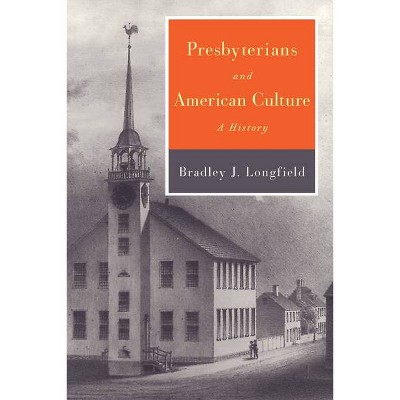Inequalities of Aging - (Anthropologies of American Medicine: Culture, Power, and Pra) by Elana D Buch (Paperback)
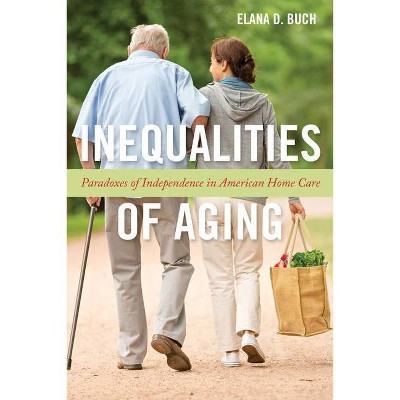
Similar Products
Products of same category from the store
AllProduct info
<p/><br></br><p><b> About the Book </b></p></br></br>"Elana D. Buch's "Inequalities of Aging: Paradoxes of Independence in American Home Care" focuses on the topic of American home care and explores various contradictions and points of tension within the industry. It also raises awareness of the problematic inequality that exists in the American home care industry and argues for the creation of a more sustainable system."--<p/><br></br><p><b> Book Synopsis </b></p></br></br><p><b>The troubling dynamic of the American home care industry where increased independence for the elderly conflicts with the well being of caregivers </b><br><b></b><br>Paid home care is one of the fastest growing occupations in the United States, and millions of Americans rely on these workers to help them remain at home as they grow older. However, the industry is rife with contradictions. The United States spends a fortune on medical care, yet devotes comparatively few resources on improving wages, thus placing home care providers in the ranks of the working poor. As a result, the work that enables some older Americans to live independently generates profound social inequalities. </p><p>Inequalities of Aging explores the ways in which these inequalities play out on the ground as workers, who are disproportionately women of color and immigrants, earn poverty-level wages and often struggle to provide for themselves and their families. The ethnographic narrative reveals how two of the nation's most pressing concerns-rising social inequality and caring for an aging population-intersect to transform the lives of older adults, home care workers, and the world around them. </p><p>The book takes readers inside the homes and offices of people connected to two Chicago area home care agencies serving low-income and affluent older adults, respectively. Through intimate portrayals of daily life, Elana D. Buch illustrates how diverse histories, care practices, and social policies overlap and contribute to social inequality.</p><p>Illuminating the lived experience of both workers and their clients, Inequalities of Aging shows the different ways in which the idea of independence both connects and shapes the lives of the elderly and the working poor.</p><p/><br></br><p><b> Review Quotes </b></p></br></br><br>Buch does an excellent job in immersing the reader in the lived experiences of the workers and their clients, and the relations that develop through the course of their daily care.-- "Ageing & Society"<br><br>Elana Buch provides an outstanding and timely critical examination of the sociopolitical realities of aging and care in the US. By engaging similarly with the intricacies of the lives of older adults, paid home care workers, and home care agencies in Chicago, Buch sheds new light on care exchanges in elderly home care.-- "Anthropology & Aging"<br><br>Elana Buch's critical and thoughtful analysis of the American home care system highlights the ways in which older adults try to simultaneously maintain their independent identities and generate new relations with the home care workers who assist them with assigned tasks.-- "Somatosphere"<br><br>The book provides a vivid portrait of the intimate but fraught and often precarious relationships that constitute paid home care in the United States, and it makes important contributions to advancing the state of several discussions in our field: about the meaning and experience of sickness and aging; about the political-economic and cultural context of care practices and access to care; and about the critical analysis of health-related policies.-- "Medical Anthropology Quarterly"<br><br>This book is a gripping, vivid, thought-provoking ethnographic exploration of home care providers and the older adults they serve. Buch (Univ. of Iowa) is at her best when describing and illustrating the incompatibility of two equally valuable social goals: providing affordable home care to aging people who want desperately to live independently in their own communities and ensuring a sufficient standard of living and economic independence for workers (most of whom are immigrants and women of color) providing that care. This rich sociological analysis pays careful attention to broad themes of race and gender inequality and advances the novel concept of generative labor, which refers to everyday practices through which individuals make and sustain life and at the same time generate and reproduce systematic, intersecting forms of structural inequality ... This engaging, theoretically sophisticated read will enrich courses on social inequalities, aging, labor, ethnographic methods, and gender.-- "Choice"<br><br>Acompelling examination of homecare that looks at both workers and elders experiences. Homecare is a growing industry with profound impacts on the lives of older people and low income workers. This accessible ethnographic account shows how the cultural commitment to independence for older adults generates dependency and inequality in the lives of homecare workers. I look forward to teaching this book and talking about the issues it raises with my students.--Jessica Mulligan, Providence College<br><br>Brilliant, illuminating, and wrenching, Buchs extraordinary ethnography offers an intimate account of how the fate of older adults and the working poor who care for them are bound together, in a society that devalues both aging and care and is obsessed with independence. Penetrating and provocative, Inequalities of Aging makes a major contribution to the anthropology and sociology of aging, care work, and social inequality.--Sarah Lamb, author of White Saris and Sweet Mangoes and Successful Aging as a Contemporary Obsession<br><br>Inequalities of Aging is a brilliantly told story of precarious and unequal lives. Page by page we witness the haunting moral engagements of those bound together, care workers and older adults, and the pretense of independence that care workers bestow on those they care for. This inspired ethnography captures, close up, the mysterious nature of human relationships and places them in the context of tenacious social policies that devalue and underpay the care workforce.--Carol Stack, author of Call to Home: African Americans Reclaim the Rural South and All Our Kin<br>
Price History
Cheapest price in the interval: 30.49 on November 8, 2021
Most expensive price in the interval: 30.49 on December 20, 2021
Price Archive shows prices from various stores, lets you see history and find the cheapest. There is no actual sale on the website. For all support, inquiry and suggestion messagescommunication@pricearchive.us
